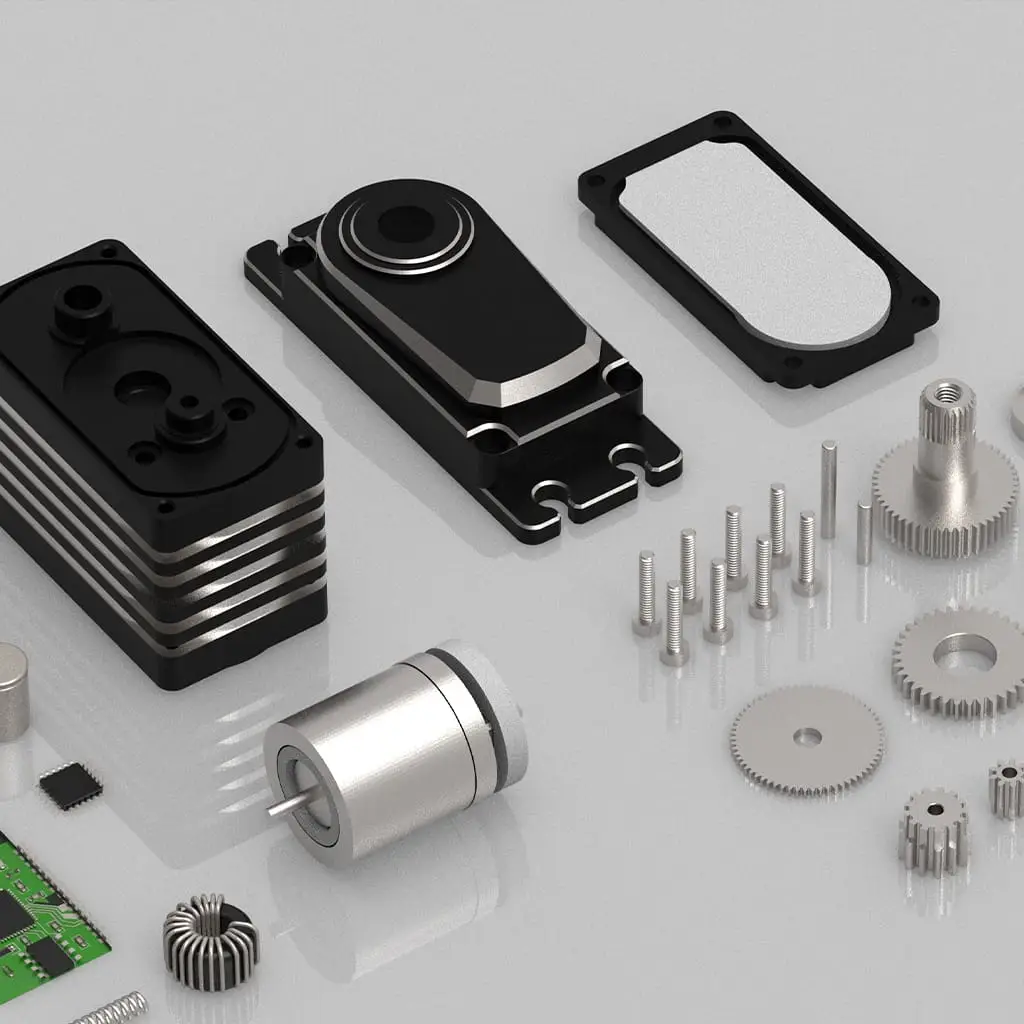Medical imaging equipment such as CT scanners, X-ray machines, MRI systems, and endoscopes are indispensable diagnostic tools in modern hospitals. The requirements placed on servos in such devices differ from those in surgical robots: they must not only operate with stability but also possess long lifespans and extremely high reliability. GXServo meets these demands through multiple design optimizations and industrial-grade manufacturing standards, offering rock-solid assurance for this class of application.
First, from a structural perspective, GXServo uses a brushless motor as its core drive mechanism. The major advantage of brushless motors is their long service life and minimal maintenance. Compared with traditional brushed motors, brushless structures experience significantly less wear during high-frequency start-stop cycles and rarely require internal component replacement. GXServo’s mean time between failures (MTBF) exceeds 10,000 hours, fully meeting industry standards requiring devices to run continuously for six months or more.
Second, GXServo excels in heat resistance and load management. For example, CT scanners generate substantial heat during operation and require the servo to rotate and position under load for extended periods. If thermal control fails, image precision is directly affected. GXServo is equipped with a high thermal-conductivity alloy shell and intelligent thermal control chips that monitor and adjust internal temperatures in real time. Even after more than 8 hours of continuous heavy-duty operation, its temperature rise remains under 25°C, significantly lowering the risk of device failure.
From a systems integration perspective, GXServo offers standardized digital communication interfaces, allowing seamless integration with master control systems. In MRI systems, which are sensitive to magnetic fields, GXServo communicates via fiber-isolated control units to prevent magnetic interference with electronic modules. This design also extends system maintenance cycles and reduces downtime caused by electrical faults.
High reliability in medical devices also entails tolerance for faults. GXServo supports fault-tolerant operation with warning shutdown and self-diagnostic functions: upon detecting load anomalies, voltage irregularities, or signal loss, the system immediately alarms or enters protection mode to prevent further failure. This is particularly suitable for automated imaging systems or nighttime inspection equipment that operate unattended.
Given the high cost of medical device maintenance and varying skill levels of operators, servo modules must be capable of autonomous operation and recovery. GXServo features firmware upgrade capabilities and supports remote maintenance and diagnostics. This means technicians can view fault logs and adjust parameters from the control terminal, significantly improving operational efficiency.
In summary, GXServo’s performance in medical imaging equipment demonstrates its strengths in mechanical durability and lifespan. Through system integration, thermal management, and fault tolerance, it lays a solid foundation for the long-term, stable operation of modern medical equipment.

